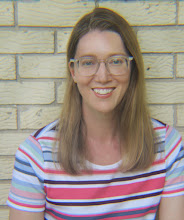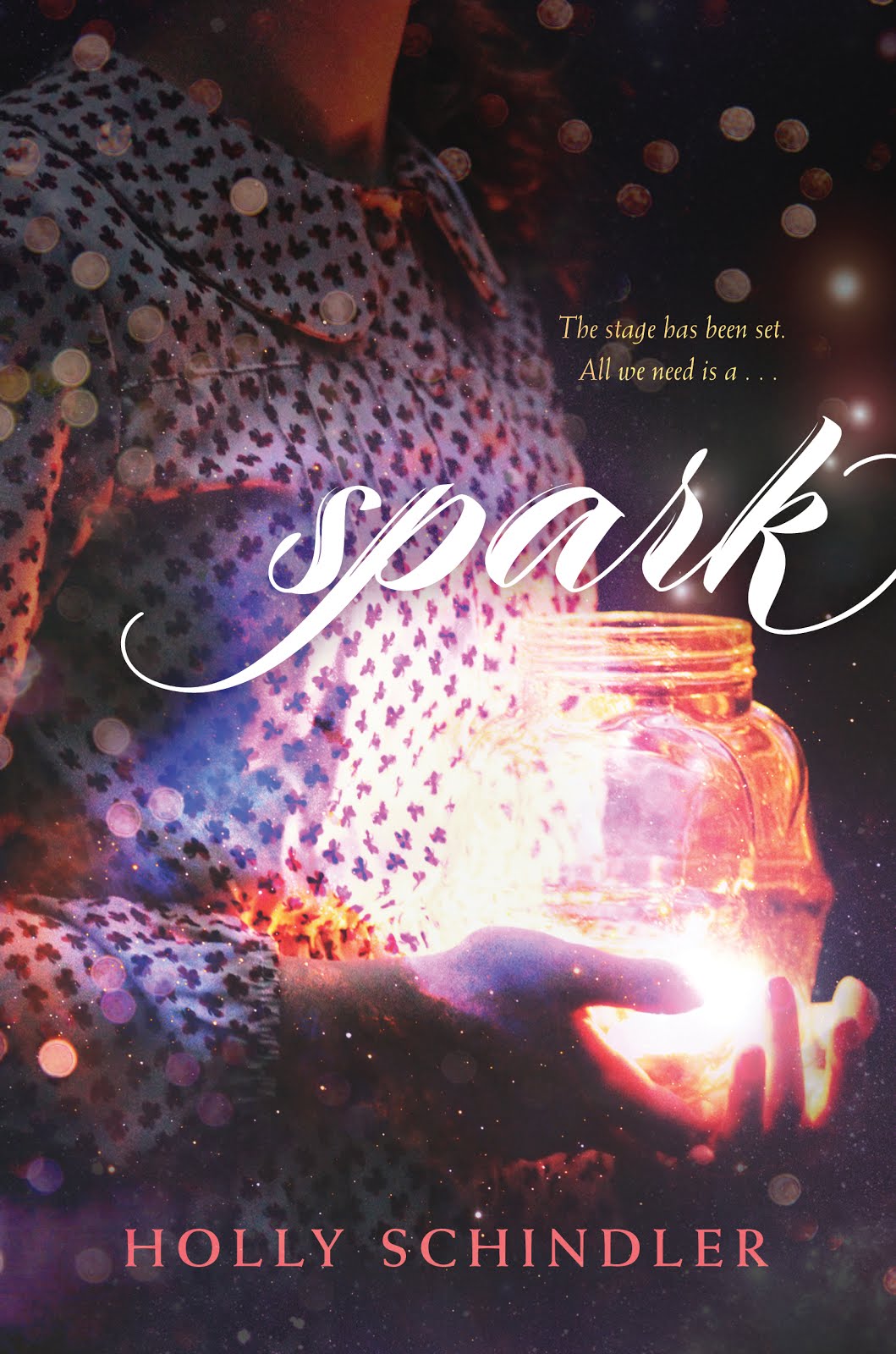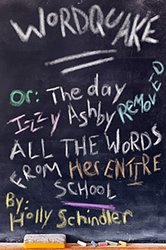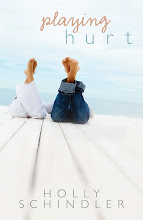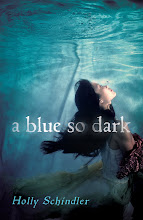Monday, September 24, 2012
PLOWING UP MY CORN
As other bloggers have discussed at my MG blog, Smack Dab in the Middle, creative work
is really tough to measure. Sure, when
you finish a book—or better yet, when a book is on the shelves of a library or
B&N—and you’ve got something physical to point to as you say, “This is what
I’ve been doing for the past two [or four or—ahem—ten] years,” people respond
positively. They’re impressed. During that decade when you’re sitting in a pair
of ripped jeans, ponytail hanging crookedly from the top of your head as you
stare for hours into a computer screen, people who don’t know better tend to
treat you as though you’re not doing much.
Or—as often happens when you’ve nixed the idea of any kind of employment
in order to pursue writing full-time—they tend to look at you the same way
Kevin Costner’s neighbors did in FIELD OF DREAMS when he plowed up his
corn. Like they can’t believe you’ve
just thrown away something so incredibly valuable.
I’ve heard it all in the eleven years since I became a
full-time writer—all sorts of unthinking reactions to what I do with my days,
especially during periods when I didn’t have something physical to point to as
I said, “This is what I’ve been working on.”
The thing is, though, some of the harshest words a writer
can hear about how hard they’re working can often come from his (or her)
self. I’ve certainly gone through
periods when I put myself through the wringer, especially when my rejections
were piling up, or when I didn’t quite meet my own self-imposed deadlines or
word count goals.
Not too long ago—maybe a year or so—I freed myself from my
own internal nagger. And I did it by
counting everything.
For example: It’s so easy for me to get tied up in my daily
word count (especially when drafting).
But I no longer count simply the number of new words I put in my
manuscript. I count everything. Notes to
self down margins. Post-it
scribbles. Emails to my editors or agent.
Ditto for time limits: After eleven years of full-time
writing, I’ve got a pretty high endurance level. I can work for eight to as many as twelve
hours a day on my current project. But
when I say that, am I only pounding out chapter after chapter on my
computer? No. I’m writing outlines in longhand. I’m researching. I’m bouncing new ideas off on my mom—who has
always been my first reader on any new project.
And, when a book is nearing
release, I count time spent on my promo work—whether that’s putting together a
new print ad, scheduling a video chat, or writing up a new guest post for a
blog tour.
It’s become my new mantra: It all counts.
Wednesday, September 19, 2012
SUPER SWEET SIXTEENTH CENTURY BLOG TOUR + GIVEAWAY
I'm thrilled to host a tour stop for Rachel Harris's debut YA, MY SUPER SWEET SIXTEENTH CENTURY. Rachel has been a fantastic supporter of mine; she wrote a incredibly flattering post about my second YA, PLAYING HURT, when it released in 2011. So when she approached me, asking if I'd consider blurbing her own debut, I eagerly agreed. I figured if she connected so strongly with something I'd written, I'd more than enjoy her own work; I was right, and sent a blurb straight to Rachel:
“Fresh and funny, Harris’s detail-rich writing makes for a truly charming debut novel.”
—Holly Schindler, author of Playing Hurt
I also love the passion that drips from Rachel's words as she speaks of her own work:
What’s been your journey as an author?
First, I believe people wear masks of different kinds, and at different times. Some are obvious, such as a makeover to get attention, trying on a new role, or trying to be someone we're not. Others are more subtle, such as a character hiding behind a mask of perfection, afraid to make a mistake, always needing to be in control. All the main characters in my books deal with this in some way.
...Super-sweet Rachel is also including a giveaway with this post. Two lucky winners will receive signed swag packs. Each swag pack includes trading cards of Cat and Lorenzo, a Super Sweet tattoo, a bookmark, a signed bookplate, and a 'super sweet' bracelet. Giveaway winners will be announced September 28th. a Rafflecopter giveaway
“Fresh and funny, Harris’s detail-rich writing makes for a truly charming debut novel.”
—Holly Schindler, author of Playing Hurt
I also love the passion that drips from Rachel's words as she speaks of her own work:
Congrats on your
debut, Rachel!
Thank you so much! This certainly feels surreal =)
Please tell us about MY SUPER SWEET SIXTEENTH CENTURY:
Sure! My Super Sweet
Sixteenth Century is about a young daughter of Hollywood who unfortunately hates the
spotlight and is being roped into a huge televised birthday gala by her
well-meaning dad and future-step-mother. They bribe her with a trip to Florence, a city she’s
been fascinated with forever because of the ties to her birth mother (the one
good thing about the woman), and while Cat’s there she discovers a gypsy tent.
Needing to do something very un-Cat-like for once, she decides to be wild and
steps through the open flap…and soon after exits in Renaissance Firenze.
With nothing but a backpack stuffed with contraband future
items, Cat soon befriends her ancestors and gorgeous artist Lorenzo. Her many
cultural missteps aside, Cat’s enjoying her Renaissance vacay (as she calls it)
until an older man filled with creeptastic amore starts sniffing around. As she
struggles to find a way back home, and her own century, she realizes that
perhaps an unwanted birthday party might not be the worst thing in life.
What was the
inspiration behind MY SUPER SWEET SIXTEENTH CENTURY?
Once I decided I wanted to write a story where a modern-day
girl gets sent to a historical setting, I got stuck choosing an era. I love
Regency novels but I also love research, and I’ve learned a lot about the
Regency period already, thanks to my book reading obsessions. So after talking
it out with my husband, the sixteenth century leapt to mind due to my
fascination with the Renaissance and Romeo and Juliet as a teen, not to mention
it would then lead to it being set in Italy, a beautiful country filled
with history. (The delicious boys and sexy accents didn’t hurt, either.)
But even once I had the setting and the era, I still needed
inspiration. I always start with my characters, interviewing them extensively,
choosing pictures for them, and making a collage. Then I create a story
soundtrack that follows the internal arc of the main character and the major
plot lines, so that while I'm drafting, I have a song or two that speaks to the
chapter I'm working on. I often turn to the song lyrics to help me add imagery
or an internal thought that drives my point home in new ways. It was at this
stage that I found the song Love Story by Taylor Swift, and shortly after the
video, which is filled with such rich visual inspiration. The song itself ends
up playing a key role in the soundtrack.
What’s been your journey as an author?
My journey began in the summer of 2010 when I read the
Twilight series. I fell back in love with reading for fun, and with the entire
YA genre. By the end of the summer, I’d decided to try writing my own book. I
quickly found a local writing group, dove straight in, and was querying my
first novel by Thanksgiving.
I’d read that you should go straight into your next book,
not sit around waiting while you query, so I started writing My Super Sweet Sixteenth Century in
early 2011. I came up with the idea toward the beginning of January, spent the
rest of the month in research, and wrote Chapter One in February. That book was
with agents by mid-April. I signed with my fabulous agent in August, and found
my home with Entangled Teen a month later. It’s been like a dream.
What’s been the best part of having a book in development? The biggest surprise?
The best part is the friendships I’ve made, hands down.
Everyone at Entangled has been amazing. The entire editorial team is made of
awesome, especially my own editor, Stacy Abrams. She knows her stuff, isn’t
afraid to show you how to make a story better, but she’s a total sweetheart and
encourager at the same time. And funny! And the other writers….we say we’re a
family at Entangled, and we really are. All the authors have been so
supportive, especially my fellow Entangled Teen girls. Those are my peeps!
The biggest surprise….how scary it isn’t. It’s like, I knew
that editors were just regular people, but I never really thought I could
become friends with them, or that they’d care just as much about my book as I
do. They’re totally on your side. Oh, and that they don’t freak if you don’t
agree with every suggestion or question they have. They understand it’s your
baby, and are just trying to make it the best it can be—and boy do they do
that!
Has seeing a book
through development changed your writing at all? If so, how?
Yes! Actually, my writing changes ever so slightly with each
book. I mean, it’s still my voice and style, but I grow with each book—I handle
certain things better, and other elements come quicker. But working with Stacy
taught me where to focus, where my strengths are, and how I can increase
tension and conflict. Really, the entire editorial process was educational, but
my favorite part was copy edits. It’s so much easier to spot redundancies,
repeated words, and overused gestures when it’s not your book, but my tics are
my tics for a reason, so they stay invisible to me without the help of other
people. Along with those strengths I mentioned, my editor really helped me see
where my weaknesses were, too, and I like to think I’ve grown because of it
(*grin*)
Every author, it
seems, has a favorite writing “trick”—reading work out loud, brainstorming
while going for a walk…What’s yours?
My favorite trick is definitely my story soundtrack. I burn
CDs and have one in the car and one in my laptop. The laptop one I use occasionally
before I write a scene to help get me in the mindset and emotional place I need
to be in, but the biggest help is the one in the car. As I drive, I sing along
to the lyrics and reflect on how they fit where my character is in their
growth, why the words speak to their situation, and I always come back home
needing to jot notes down. Sometimes entire scenes are changed just from
listening to these lyrics, and they’re almost always made better by helping me
dig deeper or add more romance or add a bigger dose of humor….I heart my
soundtracks!
Please tell us about
future books in the works:
In this series, I have a companion novel, A Tale of Two Centuries, that I just
completed and sent to my editor. It comes out in June 2013. This was a fun
twist because it’s Cat’s sixteenth-century cousin Alessandra who time travels
to present-day Beverly Hills.
This one is longer and I think goes a little deeper—not to mention a bit
swoonier. I had a lot of fun with the romance in this one. Actually, I had a
lot of fun with all of it.
Then next December, six months after Alessandra’s story
comes out, I have a third book that is completely unrelated, but also with
Entangled Teen. Rearview Mirror is a
YA thriller with paranormal elements set in my hometown of New Orleans. I’m really excited about this
book—probably because I’m drafting it right now!
After that, I have four YA story ideas and a sweet adult
romance in the works….we’ll see what my editor wants me to work on first =)
What are some common
themes in your work? What can we always expect from a Rachel Harris novel?
I adore this question! Before I started writing, I
researched the industry a lot, and I came across a blog post from an author who
mentioned that all of her books have a similar theme at their heart. That
statement really resonated with me. I love the idea of a reader knowing what
they are getting at the heart of all of your books, so I sat down and thought,
“What would I want a reader strolling through a bookstore and scanning author
names to think about when they land on my name?”
I came up with a list of adjectives and words that I wanted
my books to represent, regardless of genre. It could be YA or adult,
contemporary or paranormal, but I knew I wanted certain things to be at their
core—my so-called brand. And the tagline I came up with for my brand is Unmask Your Inner Flirt.
I’ll break down what that means to me.
First, I believe people wear masks of different kinds, and at different times. Some are obvious, such as a makeover to get attention, trying on a new role, or trying to be someone we're not. Others are more subtle, such as a character hiding behind a mask of perfection, afraid to make a mistake, always needing to be in control. All the main characters in my books deal with this in some way.
For Cat, hers is a mask of perfection she wears because her
estranged mother is a Hollywood star known for
scandal, and she’s always trying to overcompensate by never messing up in
public, and never letting people too close. It was by getting her out of her
element, out of a scene she can control and into one that she can’t, that she’s forced to deal with
these things.
(Fun side note: On my soundtrack, Cat's internal arc starts
with Poker Face by Lady Gaga because she always wore that mask, and by the end,
it’s Love Story because she’s opening herself more to the possibility of love.)
The second part of the brand comes in with the romance. I’m
a sucker for a good love story, a happy ending, and humor along the way. To me,
the word flirt represents the fun
part of the romance, where you might laugh at your relational missteps or get
the butterflies in your tummy from just looking at the guy. Those moments will
be in every one of my books, too.
I think we all wear different masks at different times of
our life, whether we know it or not, and I believe deep down there is a flirt
in each of us….a girl (or boy) who loves falling in love and enjoys being swept
away with a new romance. And that’s why at the heart of any book I write, you’ll
always find these themes.
...Super-sweet Rachel is also including a giveaway with this post. Two lucky winners will receive signed swag packs. Each swag pack includes trading cards of Cat and Lorenzo, a Super Sweet tattoo, a bookmark, a signed bookplate, and a 'super sweet' bracelet. Giveaway winners will be announced September 28th. a Rafflecopter giveaway
Monday, September 17, 2012
'TIL SUMMER
It's most definitely the end of summer here in southwest Missouri...as I type this, I'm wearing
a flannel shirt over one of last summer's tanks.
I've also been thinking ahead a bit lately, toward possibilities for trailers for both of my forthcoming books (the MG from Dial and the YA from HarperCollins). Which means that I've been pretty seriously in-tune with what visuals do for a song as I watch CMT. (The station's been something of a long-time weekend ritual, along with a big breakfast...The older I get, the more I gravitate toward bluegrass; with a semi-professional bluegrass musician in the family, I tend to think of it as a genetic predisposition.)
I was struck this morning by how really perfect the visuals are for this one. The scenes match the song and are a perfect match for the feeling I've had the past few days, as my own Missouri summer comes to an end.
Now if I could just somehow channel that when I sit down to put together my next trailer...
I've also been thinking ahead a bit lately, toward possibilities for trailers for both of my forthcoming books (the MG from Dial and the YA from HarperCollins). Which means that I've been pretty seriously in-tune with what visuals do for a song as I watch CMT. (The station's been something of a long-time weekend ritual, along with a big breakfast...The older I get, the more I gravitate toward bluegrass; with a semi-professional bluegrass musician in the family, I tend to think of it as a genetic predisposition.)
I was struck this morning by how really perfect the visuals are for this one. The scenes match the song and are a perfect match for the feeling I've had the past few days, as my own Missouri summer comes to an end.
Now if I could just somehow channel that when I sit down to put together my next trailer...
Friday, September 7, 2012
BOOK REC: SECOND HAND HEART (BECAUSE YOU REALLY HAVE TO READ IT. SERIOUSLY.)
Okay—I'm a big fan of Catherine Ryan Hyde. Talking huge.
Enormous. They don't come any more devoted than me. And SECOND HAND HEART is my
favorite of all of Hyde's books.
There's just something about this book. In the first place, it was my introduction to the concept of cellular memory; I have to say that I'm fascinated by the idea that we don't just make memories with our minds but with our entire beings—leave it to Hyde to zero in on such a beautiful idea and build a book around it. But there are also so many poignant passages here...a tree / death analogy early on in the book hit me in an especially powerful way, and I've thought of it many times since.
As an author myself, I'm constantly picking apart a novel as I read it—I'm looking at the parts, figuring out how the thing's "wired," how it works. But this book swept me up and transported me. I was able to just let go and experience it.
SECOND HAND HEART got into my heart and resonated powerfully. This is a novel with a positive impact you'll continue to feel long after you've savored the final page.
There's just something about this book. In the first place, it was my introduction to the concept of cellular memory; I have to say that I'm fascinated by the idea that we don't just make memories with our minds but with our entire beings—leave it to Hyde to zero in on such a beautiful idea and build a book around it. But there are also so many poignant passages here...a tree / death analogy early on in the book hit me in an especially powerful way, and I've thought of it many times since.
As an author myself, I'm constantly picking apart a novel as I read it—I'm looking at the parts, figuring out how the thing's "wired," how it works. But this book swept me up and transported me. I was able to just let go and experience it.
SECOND HAND HEART got into my heart and resonated powerfully. This is a novel with a positive impact you'll continue to feel long after you've savored the final page.
Saturday, September 1, 2012
FRINGES
Brainstorming topics for this month’s theme at my YA group author blog (characters on the fringes), I instantly thought of a recent clip from CBS This Morning. In talking about her latest release, WHERE WE BELONG, Emily Giffin mentions returning to her journals to get in the right mindset to write a younger, teenaged character.
The results? She was shocked; her teen years were happy and stable, but as she says in the video below, her journals were still filled with angst:
Which makes me wonder—has there ever been a teen who hasn’t felt on the fringes for one reason or another? Don’t we all, as our own toughest critics, lug around our own lot of insecurities?
The MCs from both of my own published books are also definitely characters who feel on the fringes; in A BLUE SO DRAK, Aura feels outside the boundaries of “normal” life as she cares for her schizophrenic mother. In PLAYING HURT, Chelsea’s accident ends her basketball career, making her suddenly feel on the fringes with her former teammates.
Sure, there’s angst in my books, to use Giffin’s word. But there’s also, I’d argue, a sense of acceptance by the end of both novels. In BLUE, Aura is learning to accept both her family’s history of madness and her own creative impulses. In PLAYING HURT, Chelsea is finally accepting the end of her own playing days, while looking forward to a life returning to the game she loved in another capacity—her new dream, by the novel’s close, is to become a sports psychologist.
Maybe that’s a big part of moving from adolescence to adulthood: acceptance of oneself. Mistakes, flaws, warts and all. It’s being able to sing off-key in traffic and not caring that the windows are down. It’s finding a sense of humor about oneself. It’s that perspective Giffin mentions—it’s knowing I’m not perfect, but neither is everyone else. It’s knowing in some way or another, we’re all on the fringes.
The results? She was shocked; her teen years were happy and stable, but as she says in the video below, her journals were still filled with angst:
Which makes me wonder—has there ever been a teen who hasn’t felt on the fringes for one reason or another? Don’t we all, as our own toughest critics, lug around our own lot of insecurities?
The MCs from both of my own published books are also definitely characters who feel on the fringes; in A BLUE SO DRAK, Aura feels outside the boundaries of “normal” life as she cares for her schizophrenic mother. In PLAYING HURT, Chelsea’s accident ends her basketball career, making her suddenly feel on the fringes with her former teammates.
Sure, there’s angst in my books, to use Giffin’s word. But there’s also, I’d argue, a sense of acceptance by the end of both novels. In BLUE, Aura is learning to accept both her family’s history of madness and her own creative impulses. In PLAYING HURT, Chelsea is finally accepting the end of her own playing days, while looking forward to a life returning to the game she loved in another capacity—her new dream, by the novel’s close, is to become a sports psychologist.
Maybe that’s a big part of moving from adolescence to adulthood: acceptance of oneself. Mistakes, flaws, warts and all. It’s being able to sing off-key in traffic and not caring that the windows are down. It’s finding a sense of humor about oneself. It’s that perspective Giffin mentions—it’s knowing I’m not perfect, but neither is everyone else. It’s knowing in some way or another, we’re all on the fringes.
Subscribe to:
Comments (Atom)





